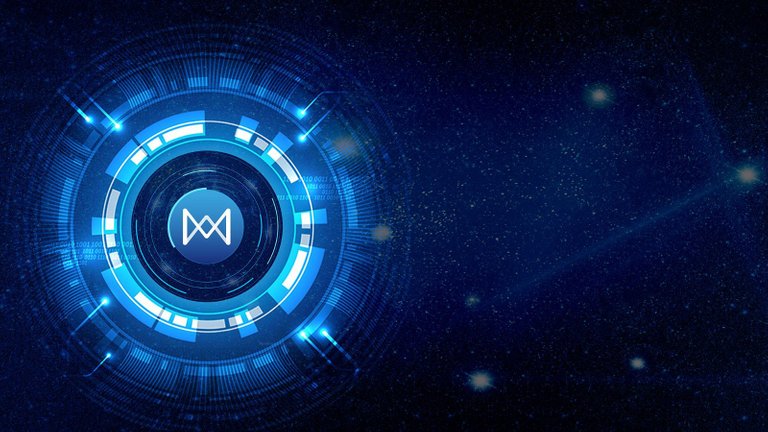
Introduction
If anybody has been following ICOs in general, they would be well aware that the QuarkChain ICO process has arrived at the final phase. However, this KYC process has undergone a relatively novel process.
Let me explain (and simulatenously evaluate the pros and cons).
The point system
They begun by issueing a point system. Essentially, to make it through to the final phase, you must secure a minimum of 60 points out of 100.
The points were contingent on the following:
- How early you joined (maximum 30 points);
- How much you contribute by the way of social content and within the telegram community (maximum 20 points); and
- A Quiz (maximum 50 points).
Contributions
This has the first deadline - hence it's only right to mention this first. Most KYC's provide bounties that reward with tokens but Quark used this as part of the grading system. That's different. This is not usually used as a tool for determining whether people can participate in the token sale or not.
I thought this was good because it meant that those who had the biggest right to the tokens were also those who had contributed most to the product. Acceptable contributions were also wide-ranging, coming in various shapes and sizes e.g. infographics, social publicity, testing, answering questions in telegram, etc. They also treated this like a bounty simultaneously and so contributors can also expect some kind of recompense even if they didn't succeed in acquiring tokens otherwise.
The problem however was that this came before the KYC process and the subsequent whitelisting. This means that's it's possible for people to go to quite some length to produce good content and contribute accordingly, only to subsequently come out with barely anything.
KYC
This was unfortunately the most frustrating part of the process. Who can blame them, the community was 86,000+ members and they had to handle a plethora of applications + resubmissions. The issue here was that they ended up rejecting 15-20% of all applications due to "strict measures" enforced by a third party. This was unfortunate because quite frankly, the process was manual and therefore prone to error. I know, because there was an error in mine which resulted in a subsequent rejection.
However, that said, the team, frantically tried to rectify any mistakes made whilst understandly accepting that they won't be able to rectify them all. This was undoubtedly the worst part of the process, with quite a lengthy kyc form. Better controls / resource would have been helpful here, however, that doesn't do away with the immense effort on the part of the team to handle numerous issues as they arose.
One thing worth mentioning here though was the undeniable image portrayed. A large number of indefensible KYC rejections seemed particularly unfair towards early supporters and active contributors. It looked like a way to get free marketing. At times, there was also a huge lack of empathy from within the community in general. However, I would also reinforce the wonderful efforts on the part of some (not all) admins to rectify this.
The Quiz
This was definitely my highlight. The quiz essentially asked a range of questions varying in difficulty, relating to the topic. Some questions required basic product knowledge, others required a more detailed understanding of the whitepaper and others a bit of time scouring through YouTube videos. These 25 questions were definitely fun and you had 24 hours to do it.
The pros of this was that those buying in would be more likely to understand what they were purchasing. This is vital. The more people understand how wonderful the product is, the more likely they are to HODL. This will ultimately reduce the circulating market supply and boost the price which is good.
Additionally, this means that those who get through to the lottery phase at the end, would have generally put more work in than those who didn't. Meritocracy indeed.
The con however was that someone circulated answers. Reducing one's ability to do this through making it timed with a plethora of questions that would scarecly be answered and would stop someone from being able to write them down etc. Or a random selection of questions. This would have helped maintain the quiz's usefulness.
Additionally, if you weren't on the telegram group for about 2 days, it's possible, as some have recently discovered, that you could miss the quiz. Without even realising.
The Lottery
This is the final phase and it's essentially performing a sample of 5000 without replacement - whilst ensuring your chances increase proportionally with score. The issue here is that it's a low cap public sale and a large amount of interest. There's a remaining of 4 million dollars to be raised and 5000 participants. Therefore, we're looking at about $800 maximum contribution from each person because 80% of the tokens went in the private sale.
They've tried to keep it fair and the above has (somewhat fairly) reduced the number of participants. However the difficulty now, is rejecting someone that has done all of the above. Kudos for the attempt of fairness however it is difficult to justify rejecting someone at this stage.
Conclusion
I think there are beautiful novelties here. The nature of the whole process shows me that they care about the type of investors they attract more than just the money they bring. I have high hopes for the project and the team.
That said, there are a few issues I've highlighted that if improved, could really make this style the new standard for high demand ICOs.
Cheers,
@CryptoCrayze
If you like, Upvote!
If you love, Follow!!
If you enjoy, Resteem!!!